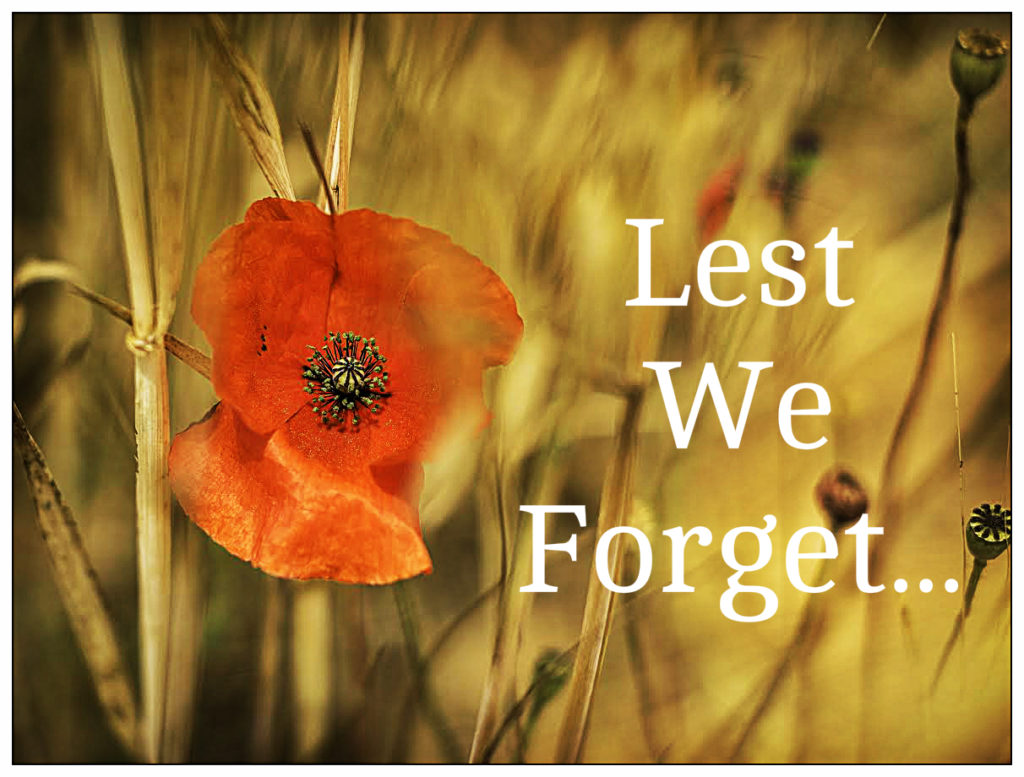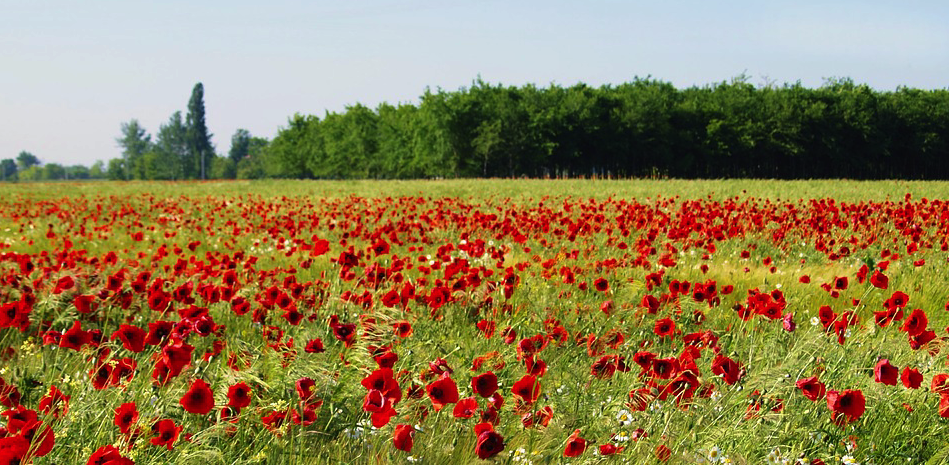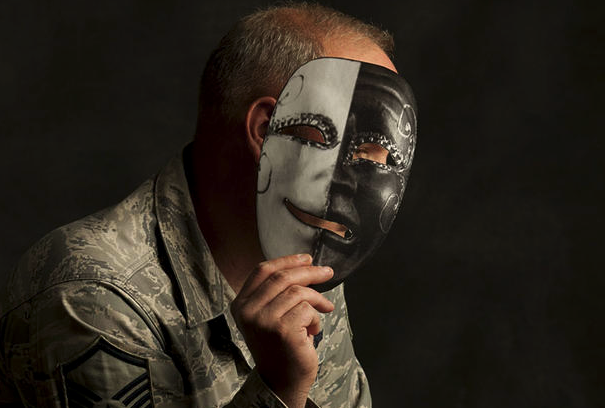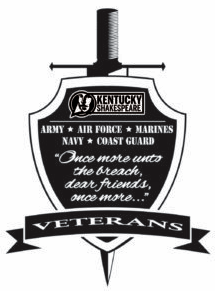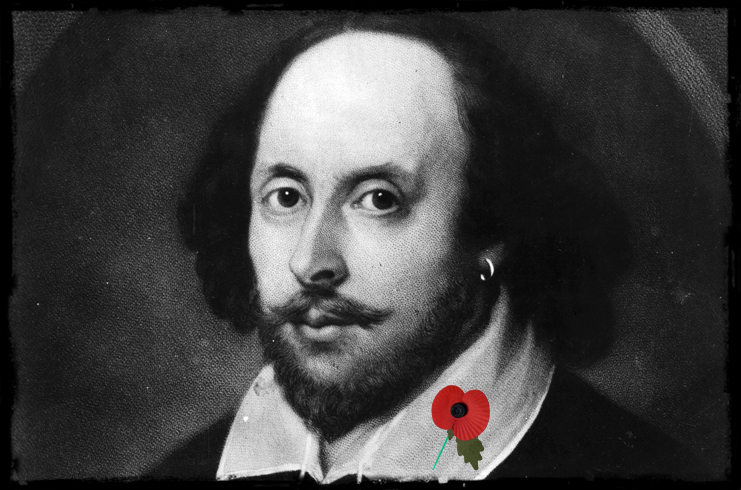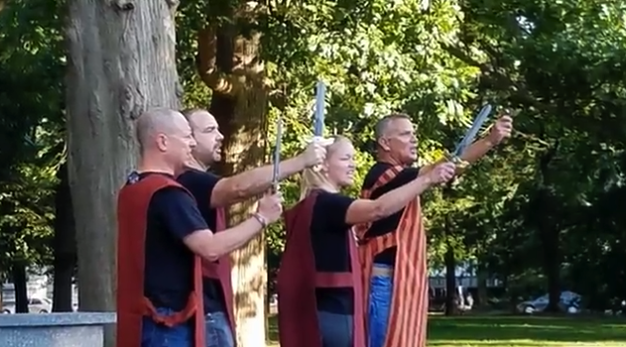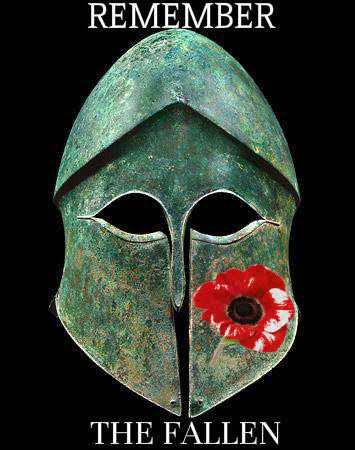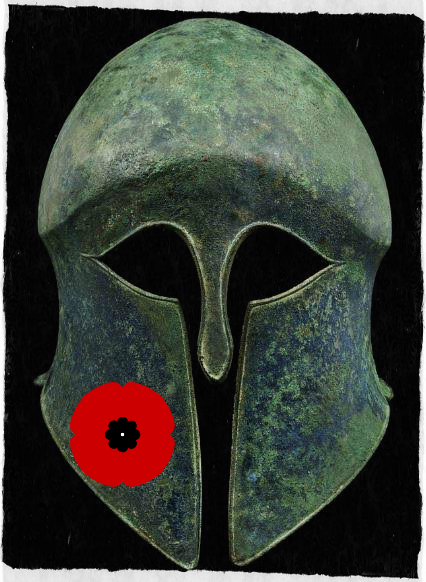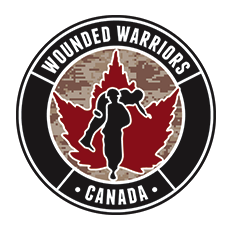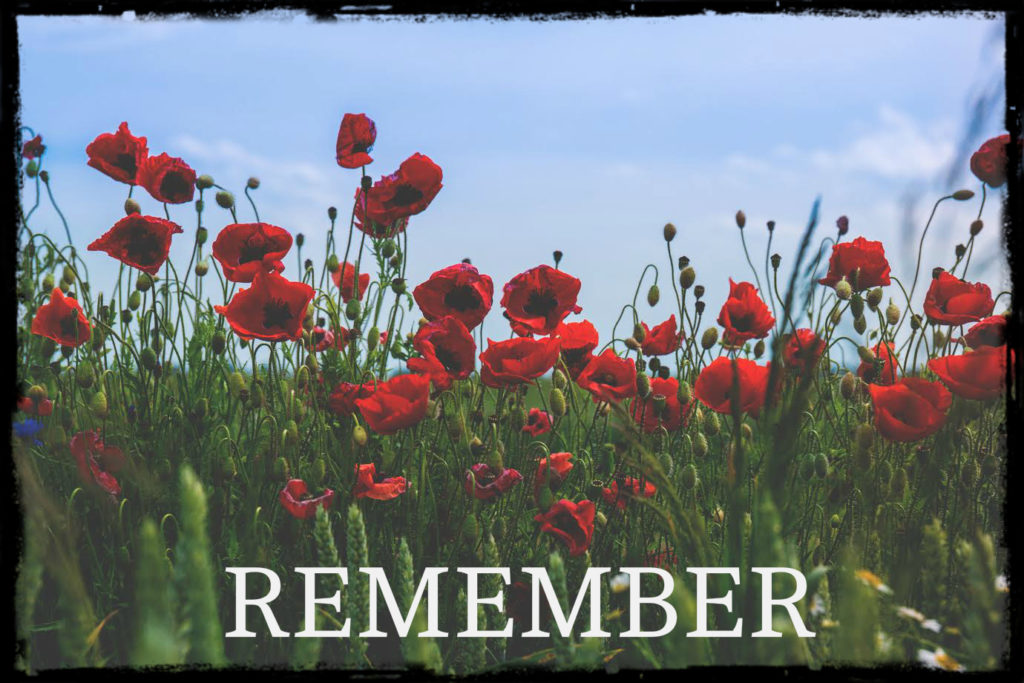
Armistice Day
Remembrance Day – Healing Veterans with Shakespeare
Hello Friends,
Welcome back to Writing the Past.
As ever, we have come to a most solemn time of year: Remembrance Day.
On November 11th, at the 11thhour, we commemorate the end of World War I, but more importantly, we remember and honour the lives and sacrifices of our men and women in the armed forces and emergency services, as well as their families.
Most of us likely know someone who has been touched by the cold hand of War, be it a grandparent, parent, spouse, or some other family member, a friend, a colleague or someone else.
Sadly, war and conflict are not only constants of history, but also of the present.
In the Eagles and Dragons series of books, many of the main characters are soldiers, and later in the series, themes of post-traumatic stress are central to the story.
But that is fiction, and most readers like a happy ending.
Sadly, in real-life, veterans and their families do not always get a happy ending. The trauma of war is real, acute, and destructive, and our servicemen and women need all the support they can get.
They deserve it, don’t they?
Of course they do!
In previous years, I’ve written about charities and programs that have used historical sources and texts to help veterans with their healing.
One of these highlighted the amazing work of the charity, Theatre of War, in which actors perform ancient Greek plays by Euripides, Sophocles and others in order to help veterans discuss the difficult emotions and traumas brought about by war.
If you haven’t read the post about Theatre of War, then you can check it out by CLICKING HERE.
This year, I wanted to highlight the work of another wonderful program using literature and theatre to help veterans overcome the trauma of war and find some camaraderie at home.
The program is called Shakespeare with Veterans.
When I read about this, I knew that I just had to write about them.
Shakespeare with Veterans is a not-for-profit program put on with help from the Kentucky Shakespeare company and veterans from the local Vet Centre and the female vet organization, Athena’s Sisters.
The program itself is the brainchild of Colonel Fred Johnson (USA retired), a veteran himself who saw and experienced the healing potential of art when he needed it. He chose Shakespeare because, as he has been quoted “no one in the English language speaks more directly to the Veteran experience and the warrior’s heart than William Shakespeare.”
“O, pardon me, thou bleeding piece of earth,
That I am meek and gentle with these butchers!
Thou art the ruins of the noblest man
That ever lived in the tide of times.
Woe to the hand that shed this costly blood!
Over thy wounds now do I prophesy,–
Which, like dumb mouths, do ope their ruby lips,
To beg the voice and utterance of my tongue–
A curse shall light upon the limbs of men;
Domestic fury and fierce civil strife
Shall cumber all the parts of Italy;
Blood and destruction shall be so in use
And dreadful objects so familiar
That mothers shall but smile when they behold
Their infants quarter’d with the hands of war;
All pity choked with custom of fell deeds:
And Caesar’s spirit, ranging for revenge,
With Ate by his side come hot from hell,
Shall in these confines with a monarch’s voice
Cry ‘Havoc,’ and let slip the dogs of war;
That this foul deed shall smell above the earth
With carrion men, groaning for burial.”
(Julius Caesar, Act III, Scene I; Mark Antony’s monologue)
Shakespeare with Veterans is a free, weekly conversation group in which veteran men and women of all ranks can come together to talk about their shared experiences in the context of Shakespeare’s plays, while telling their own stories of war, life, and family.
By looking at Shakespeare’s works, they delve into themes of war, empathy, tragedy, and redemption. They are able to talk about how they feel with those who understand.
Shakespeare with Veterans participants do not perform the plays in their entirety, but focus on performances of those soliloquies and scenes that resonate with their shared experiences as veterans, as warriors. Unlike programs where trained actors perform plays for veterans, these veterans are the performers. They discuss, read, rehearse and perform for the public and fellow vets!
Some of the plays they have performed scenes from are Merchant of Venice (themes of revenge), Hamlet (theme of suicide), Julius Caesar (themes of guilt and death), and of course, Henry V and the important themes of honour, duty and brotherhood that are familiar to all the participant vets.
If we are mark’d to die, we are enow
To do our country loss; and if to live,
The fewer men, the greater share of honour.
God’s will! I pray thee, wish not one man more.
By Jove, I am not covetous for gold,
Nor care I who doth feed upon my cost;
It yearns me not if men my garments wear;
Such outward things dwell not in my desires:
But if it be a sin to covet honour,
I am the most offending soul alive.
No, faith, my coz, wish not a man from England:
God’s peace! I would not lose so great an honour
As one man more, methinks, would share from me
For the best hope I have. O, do not wish one more!
Rather proclaim it, Westmoreland, through my host,
That he which hath no stomach to this fight,
Let him depart; his passport shall be made
And crowns for convoy put into his purse:
We would not die in that man’s company
That fears his fellowship to die with us.
This day is called the feast of Crispian:
He that outlives this day, and comes safe home,
Will stand a tip-toe when the day is named,
And rouse him at the name of Crispian.
He that shall live this day, and see old age,
Will yearly on the vigil feast his neighbours,
And say ‘To-morrow is Saint Crispian:’
Then will he strip his sleeve and show his scars.
And say ‘These wounds I had on Crispin’s day.’
Old men forget: yet all shall be forgot,
But he’ll remember with advantages
What feats he did that day: then shall our names.
Familiar in his mouth as household words
Harry the king, Bedford and Exeter,
Warwick and Talbot, Salisbury and Gloucester,
Be in their flowing cups freshly remember’d.
This story shall the good man teach his son;
And Crispin Crispian shall ne’er go by,
From this day to the ending of the world,
But we in it shall be remember’d;
We few, we happy few, we band of brothers;
For he to-day that sheds his blood with me
Shall be my brother; be he ne’er so vile,
This day shall gentle his condition:
And gentlemen in England now a-bed
Shall think themselves accursed they were not here,
And hold their manhoods cheap whiles any speaks
That fought with us upon Saint Crispin’s day.
(Henry V, Act IV, Scene III; Henry’s St. Crispin’s Day speech)
I find it heartening and hopeful that programs like this exist for our veterans, and though they may not be a good fit for some, it does seem that for others, it is a form of relief or deliverance from the trauma they are dealing with as a result of service to their country.
I love Shakespeare, and have studied his works for many years, but this is an aspect of the power of the Bard that I was truly ignorant of until now.
To read more about Shakespeare with Veterans, and Kentucky Shakespeare, CLICK HERE.
You can also watch this video of one of their performances:
This Remembrance Day, and every day, I would like to offer my heartfelt thanks to all the men and women in uniform, and their families, who have risked their lives on the battlefields of the world.
Thank you for your courage, and thank you for your service.
Lest we forget…
Rewarding Sacrifice: What today’s world leaders can learn from Alexander the Great
Every year around this time, I try to write a post dedicated to the theme of Remembrance Day, something of a hat-tip to the service men and women who are scattered over the Earth trying to protect the world from itself.
After all, everyone one of my books deals with warriors, the struggle of war, and the changes war wreaks upon the fighters, their families, and the world around them. Eagles and Dragons Publishing’s #1 best selling book in 2016, A Dragon among the Eagles, is dedicated to men and women in service (and I mean that with utmost sincerity), and every year I attend my local Remembrance Day ceremony and think of all those who have laid down, or are currently risking their lives for the rest of us.
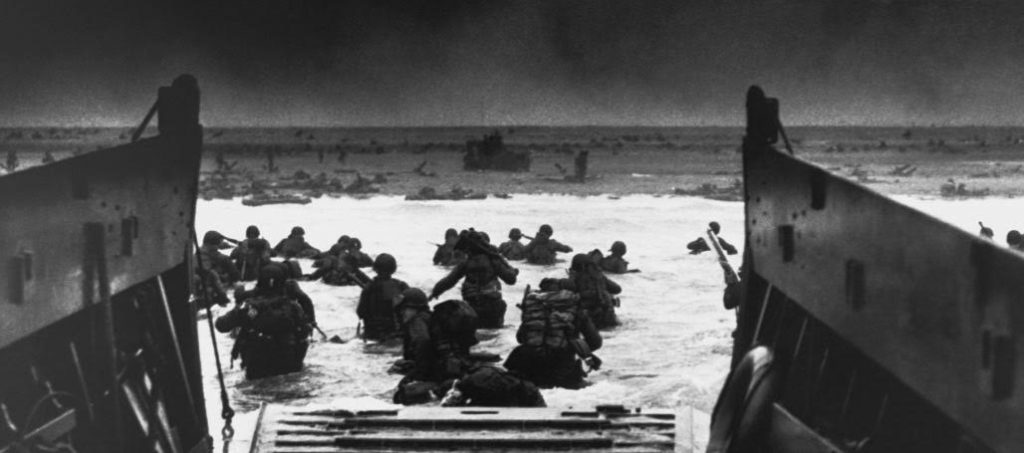
D-Day at Omaha Beach, Normandy
I think of my two grandfathers who fought in the World Wars as part of the British Army and Greek Merchant Navy respectively, and of my cousin who lost her husband outside of Kandahar more recently.

But is this enough of a tribute?
I don’t think so.
Frankly, I feel like anything I do or say or write, no matter how sincere and heartfelt it is, is not enough to be of sufficient thanks.
And I’m not talking about honouring war or the politicians who send men and women to war for their own selfish ends. I’m not going to sully this post with talk of political motives.
The troops are not responsible for the wars that happened in the past, or that are happening as we speak.
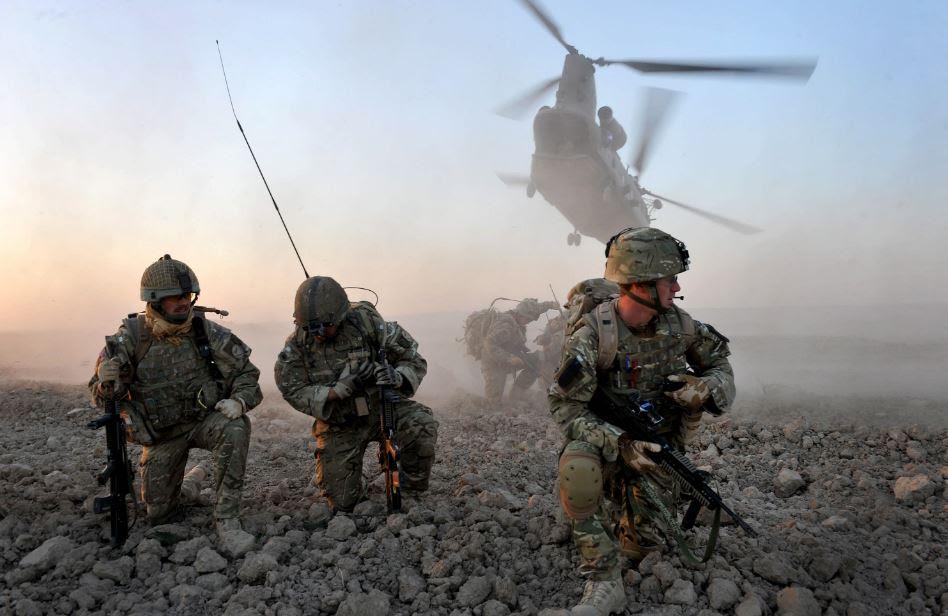
British Troops in Afghanistan
Sadly, we’ve seen a whole new generation of veterans emerge, people younger than you or I. When I was young, the word veteran was relegated to grandparents wearing poppies, or stories from history.
Not so anymore.
And we’ve a seen a resurgence of anti-war, pro-soldier art in the form of books, music, illustration, poetry, film and more. So much that seeks to honour the sacrifices being made.
Is it important to create these works of art?
Absolutely.
But again, is it enough?
I still don’t think so…
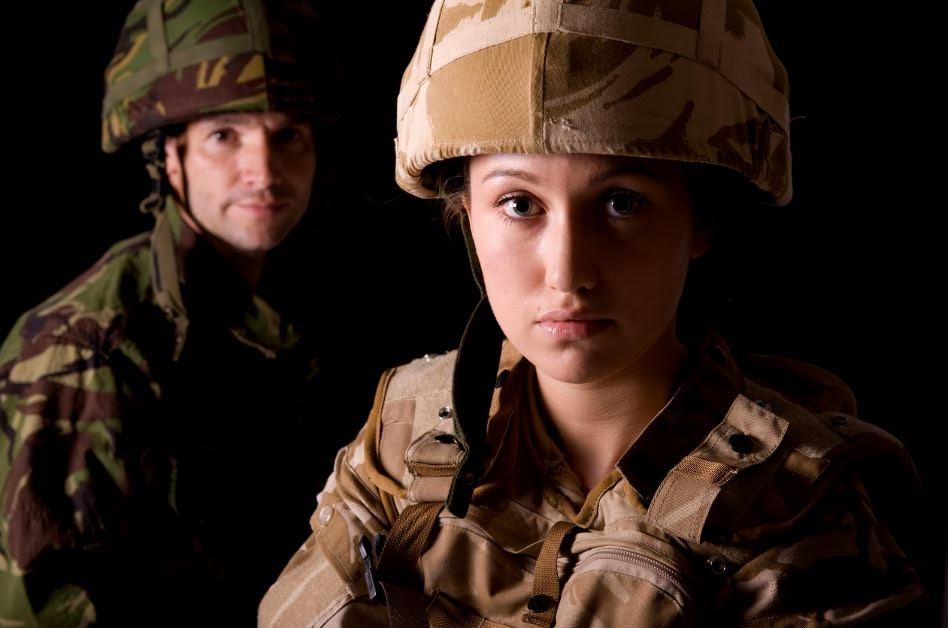
A new generation of troops
Let me say this now. I don’t have any answers. You won’t leave this post thinking, wow, he’s hit it on the head!
That is not my intent. But my hope is that we can all be a bit more aware and leave this post with some questions in our minds.
My original intent with this post was to rant about the lack of support for troops returning from various tours in the current hell-holes of the earth.
But ranting isn’t productive either.
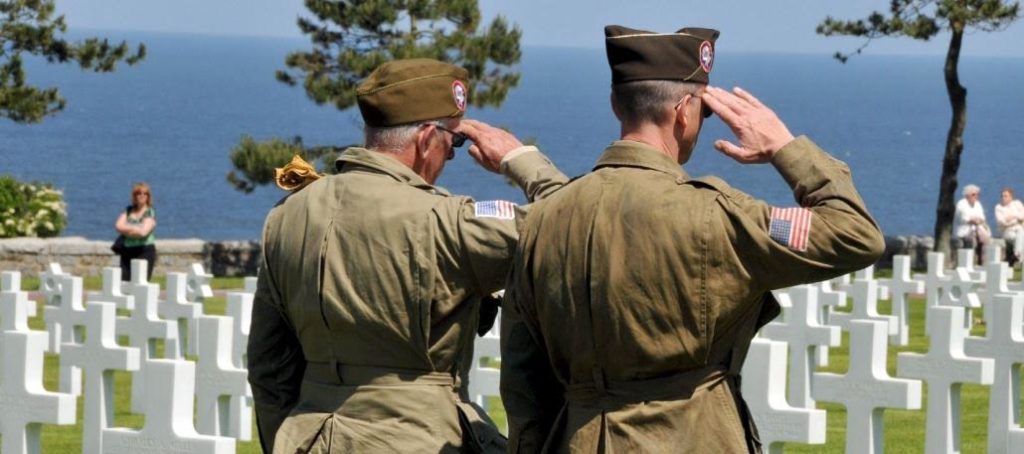
WWII veterans visiting a cemetery in Normandy
In truth, when I started research for this post, I did some digging on-line for programs intended to support veterans and their families here in Canada, as well as in the USA and United Kingdom.
To my surprise, there are a lot of support systems in place.
That’s good, because veterans of any age are dealing with a tonne of shite that you and I can only imagine. Here are just a few:
-
extreme uncertainty
-
re-integration into civilian society
-
proper health care for injuries sustained in line of duty
-
PTSD (Post-Traumatic Stress Disorder)
-
relationship difficulties
-
unemployment
-
homelessness
-
financial uncertainty and debt
That is a pretty heavy list, and there are a lot more that could be added to it.
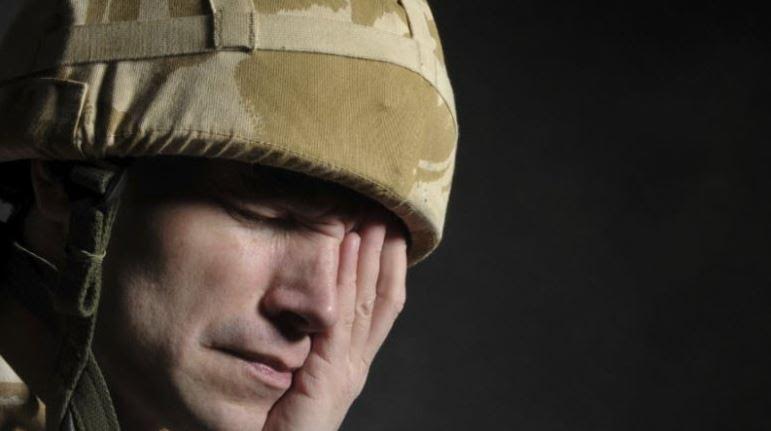
The support that is out there is largely charity and foundation-driven. Many groups seem to be doing some outstanding work, and they do get some government support, but perhaps not enough.
Shouldn’t the people sending troops into danger do their utmost to help those same troops when they return home and are in crisis as a result of combat?
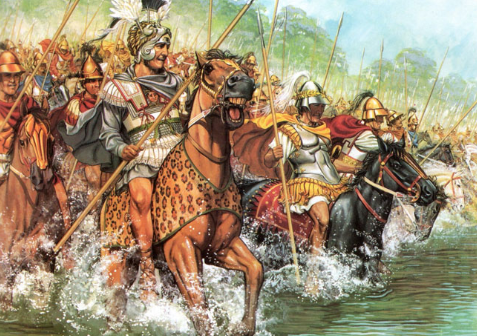
Alexander riding into battle at the head of his troops
This leads me to the title of this post: Rewarding Sacrifice: What today’s world leaders can learn from Alexander the Great
Whenever I think of the prime example of a true leader, I think of Alexander the Great.
Yes, I know many think of him as blood-thirsty tyrant, a maniacal conqueror, maybe even a selfish psychopath.
Whatever you think of Alexander the Great, however, you can’t deny that he shared in his soldiers’ hardships, and led by example. He inspired his troops to do what many thought was impossible, and after it all, including looming mutinies, they still loved him.
Alexander led from the front in every engagement, and when the battles were over, he knew how to reward his soldiers.
He knew that they had given everything to him, that they had been away from their families for years. They had fought and died, and Alexander, though disappointed with their grumblings at times, knew how to reward their sacrifices.
So what can world leaders learn from Alexander the Great?
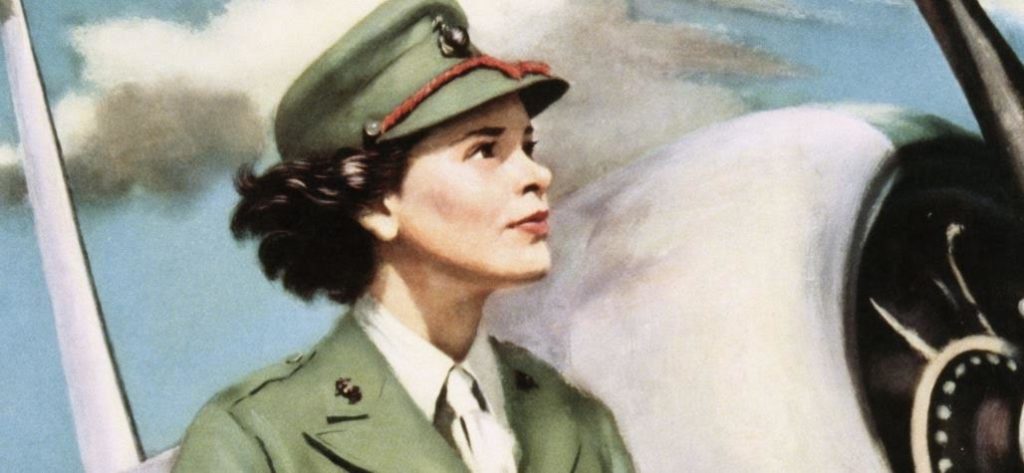
What prompted this question was a passage I came across while doing some research for the (still ongoing) Alexander novels.
When Alexander’s army had crossed the Gedrosian Desert at the end of their long march to India, and they arrived at Opis, the troops, jealous of ranks given to Persians, threatened mutiny again.
Alexander delivered his famous ‘speech at Opis’ then, speaking to his disgruntled troops, not as the son of Zeus, or the new ‘Great King’, but as one of them. He could do this, and his words did move them, for he had shared their toils. If you would like to read the full speech in Arrian’s Anabasis, CLICK HERE.
But what we are concerned with here is not the mutiny, or the speech itself. It is how Alexander rewarded the veterans, those unfit for service due to old age and injury, or those unwilling to go further.
According to A.P. Dascalakis in his book Alexander the Great and Hellenism, Alexander:
“…had paid off all their debts, without asking how they had been contracted: they received high pay, besides what they seized as booty after every siege. Most of them had golden wreaths, as immortal guerdons of their valor and of honor from him. And if any died, their death was glorious, their burial splendid; bronze statues of most of them were set up in their towns, their parents were honoured and were exempt of all tax or levy.”
Think about some of that for a moment…and then think of the list of things troops returning home have to deal with after serving.
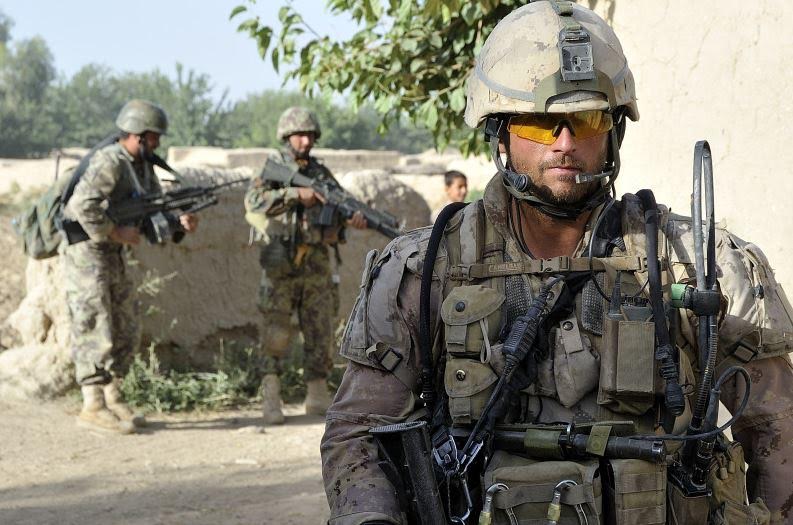
Canadian troops in Afghanistan
From what I can tell, there are support programs to help veterans with PTSD, injuries, and general health care, but we still hear a lot about veterans living on the streets, unable to afford a home, however small, or even get a job.
Some might say ‘Hey, a lot of other people are out there facing those same things!’, and that is true, but not everyone steps forward to defend their fellow citizens on the battlefield.
Alexander the Great honoured his soldiers with wreaths and statues and his love, but more practically, he paid off their debts, gave them good pensions, and rewarded their families by exempting them from taxation. He also ordered that soldiers’ children be given a proper education.
This got me to wondering…
If returning veterans did not have to worry about debt, taxation, homelessness, little to no pension, or further education for themselves or their children, they could focus more on the intense healing needed for them to deal with PTSD, health issues, new disabilities, and re-integration into the society which they had stepped up to defend.
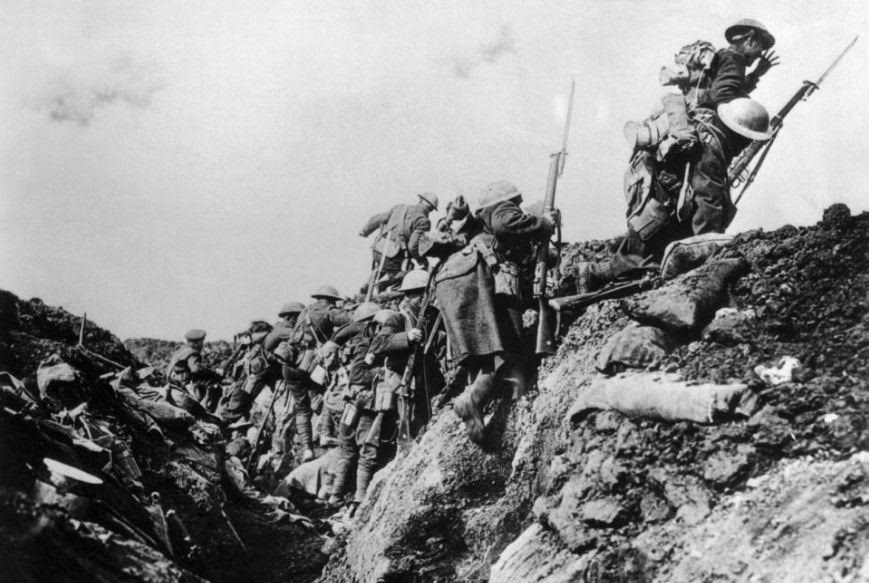
Out of the trenches in WWI
I think Alexander the Great had it right. Give your veterans the rewards they deserve, commensurate with the sacrifices they have made.
I know this is more practical, but sometimes I’m guessing that is what’s needed.
Here are some crazy ideas Alexander the Great would approve, and that world leaders could implement for veterans:
-
Forgive all debts for veterans and their families so that they can have a fresh start
-
Give them boundless health care to overcome their wounds (mental and physical)
-
Ensure all vets get high-level pensions
-
Create legislation that forces all colleges and universities to provide free tuition for veterans and veterans’ children
Some of this may already be done in some countries, but I suspect most not.
Does this mean higher taxes for the rest of us civilians?
Likely, yes. But these are things that I think we can do for those who put themselves on the line for the rest of us.
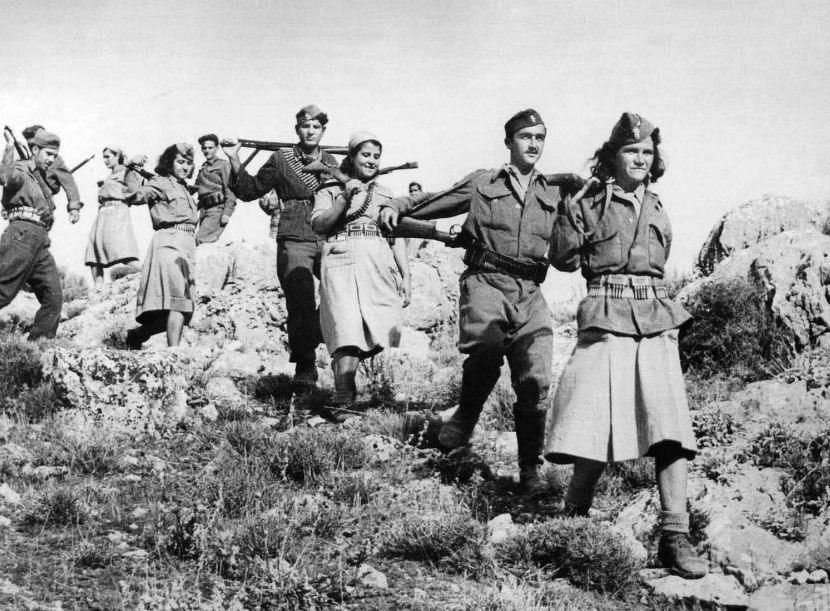
Greek Resistance fighters in WWII
Call me naïve and idealistic, but with everything else vets are dealing with, money worries should not be among them.
As I said before, I don’t have all the answers, and I don’t know about all the programs for veterans and their families that are out there.
Here are a few that I know of and which I came across while researching this post:
In Canada:
Vets Canada
Veterans Transition Network
Wounded Warriors Canada
Veterans Affairs Canada
In the United Kingdom:
Veterans Aid
Veterans’ Foundation
Royal British Legion
Veterans UK
In the United States:
Disabled Veterans National Foundation
Veterans Support Foundation
United States Veterans Initiative
US Department of Veterans Affairs
If any of you know of some particularly helpful charities or programs in the country where you are, please do share the information in the comments below. You never know who will be reading and whether something here might help.
Also, if you haven’t heard about Theatre of War, you may want to check out this post on healing PTSD with ancient Greek tragedy. PTSD was a condition that afflicted ancient warriors as well as modern ones, and this particular theatre group has been making great headway in helping veterans to cope with PTSD. CLICK HERE to check it out.
As for what us civilians can do, it may not be enough, but every little must help.
Pin a poppy on your jacket, donate to a veterans’ charity, go to a ceremony, write a blog post, shake a vet’s hand, say thank you to a veteran.
It’s all better than doing nothing, lest we forget…
Thank you for reading

